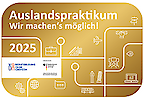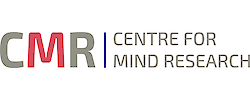Dissociative and Functional Disorders
Management
Dr. Max Christian Pensel, M.A. (ORCID: 0000-0002-2760-2269)
Research Interest
According to ICD-11, dissociative disorders refer to involuntary, complete or partial interruptions of sensations and perceptions, affects, thoughts and memories as well as control over body movements and ultimately the experience of one's own identity.
Dissociative disorders also comprise somatoform symptoms. Those affected experience, for example, paralysis, limb tremors, non-epileptic seizures or impaired speech. The symptoms usually begin, end and change suddenly. They cannot be assigned to a classic medical or “structural” cause, hence they are considered “functional” in somatically oriented disciplines like neurology.
Dissociative and functional disorders are connected to trauma-related disorders (e.g. PTSD, complex PTSD) as well as to developmental and personality disorders.
The research group's work aims to better understand dissociative and functional disorders based on clinical observation and to develop new treatment avenues. For this purpose, there are various scientific collaborations in place to provide a wide range of research methods.
• Biomarkers und characteristics of dissociative and functional disorders (collaborative project of the departments of Psychiatry and Psychotherapy, Epileptology as well as Psychosomatic Medicine and Psychotherapy)
• Dissociative symptoms during the Sars-CoV-2 pandemic situation
• Treatment techniques for dissociative and functional disorders
• Medical app development
• Clinical research
• Via collaborations: Virtual reality, medical apps and devices, video-EEG monitoring, magnetic resonance imaging, genetics/epigenetics
Group members:
- cand. med. Sophia Haag
- cand. med. Marie Katsarava
- cand. med. Charlotte Lau
- Sevde Nur Yurdakul Aygün (Physician)
- cand. med. Annik Peterhoff
- cand. med. Hanna Rings
- cand. med. Louisa Schäfer
- cand. med. Friederike Schwalbach
- cand. med. Charlotte Steinau
Associated group members:
- cand. med. Husam Abu Rub
- cand. med. Joelle Asfour
- cand. med. Edwin Dietrich
- cand. med. Franziska Fries
- Anika Kobialka (Physician)
- Jonathan Laatsch, MSc, PhD
- cand. med. Philipp Klaas
- cand. med. Judith Raschkowski
- cand. med. Tido Stritzke
- Andreas Tryfonos (Physician)
Alumni:
- Dr. med. dent. Alexander Blazejak
- Dr. med. dent. Johanna Siems
• Atzor MC, Jung L, Selaskowski B. et al. Therapie-Apps und digitale Gesundheitsanwendungen in der Behandlung der adulten Aufmerksamkeitsdefizit‑/Hyperaktivitätsstörung: ein Überblick. Nervenarzt 2025; 96: 451–457.
• Schöne C, Abourafia K, Pensel MC. Extended diagnostics for dissociative seizures. Clin Epileptol. 2024;37: 139–143.
• Peckmann C, Kannen K, Pensel MC, Lux S, Philipsen A, Braun N. Virtual reality induces symptoms of depersonalization and derealization: A longitudinal randomised control trial. Computers in Human Behavior. 2022;131:107233.
• Wiebe A, Kannen K, Selaskowski B, et al. Virtual reality in the diagnostic and therapy for mental disorders: A systematic review. Clinical Psychology Review. 2022;102213.
• Pensel MC, Schnuerch M, Elger CE, Surges R. Predictors of focal to bilateral tonic-clonic seizures during long-term video-EEG monitoring. Epilepsia. 2020;61(3): 489-497.
• Full list: https://orcid.org/0000-0002-2760-2269
• Research group Hertz Chair for Artificial Intelligence and Neuroscience, CAIAN (Head Prof. Dr. Dr. Dominik Bach), University of Bonn
• Research group Applied Neuroscience and Neurotechnologies (Head Dr. Marcel Bausch, Dr. Arthur Jordan), Department of Epileptology, UKB
• Research group Virtual Reality Therapy and Medical Technology (Head Dr. Niclas Braun), Department of Psychiatry und Psychotherapy, UKB
• Research group Vocal Control and Vocal Well-Being Lab (Head Dr. Maria Dietrich), Department of Psychiatry und Psychotherapy, UKB
• Research group Brain Genomics (Head Prof. Dr. Andreas Forstner), Institute for Human Genetics, University of Bonn
• Research group Interventional Neuropsychology (Head PD Dr. Christian Hoppe), Department of Epileptology, UKB
• Institute for Digital Medicine (Marko Jovanović, Head Prof. Dr. Stephan Jonas), University of Bonn
• Research group Autobiographical Memory and Imagination (Head PD Dr. Dr. Cornelia McCormick), UKB Department of Old Age Psychiatry and Cognitive Disorders
• Research group ADHD in Adulthood (Head Prof. Dr. Alexandra Philipsen), Department of Psychiatry und Psychotherapy, UKB
• Research group Clinical Epilepsy Research (Head Prof. Dr. Rainer Surges, MHBA), Department of Epileptology, UKB
• Neuro-aCSis clinician scientist – program, German Research Foundation (DFG), 2025-2028
• Research award, Elfriede Dietrich Foundation, 2024
• Argelander grant, University of Bonn, 2020
• Award for the best poster, German Society of Epileptology (DGFE), 2017
Contact
Klinik und Poliklinik für Psychiatrie und Psychotherapie
Universitätsklinikum Bonn AöR
Venusberg-Campus 1, Gebäude 80/82
53127 Bonn
+49-228-287-31326
Scientific Outreach (german language)
• ZDF “Volle Kanne” vom 17.02.2025 (Dissoziative Anfälle - ab Minute 29:20):
https://www.zdf.de/video/magazine/volle-kanne-104/volle-kanne-vom-17-februar-2025-mit-eckart-von-hirschhausen-100
• “Scharfe Welle - Der Bonner Epilepsiepodcast”, Folge 18: Funktionelle - dissoziative - psychogene Anfälle. Was ist das eigentlich? vom 27.06.2024:
https://www.youtube.com/watch?v=pWg28f8Pc34&list=PLErdq8X2fjj_If4QSi7mTd1aDcVKiHiSw&index=15
Completed medical doctoral theses
(University of Bonn, primary supervisor Prof. Dr. Alexandra Philipsen), german language:
• Blazejak A. Der Einfluss der SARS-CoV-2-Pandemie und behördlicher Maßnahmen auf Angstsymptome und depressive Symptome bei psychiatrischen Erkrankungen, 2025.
• Siems J. Der Einfluss der SARS-CoV-2 Pandemie und behördlicher Maßnahmen auf Dissoziationserleben bei psychiatrischen Erkrankungen, 2025.


















